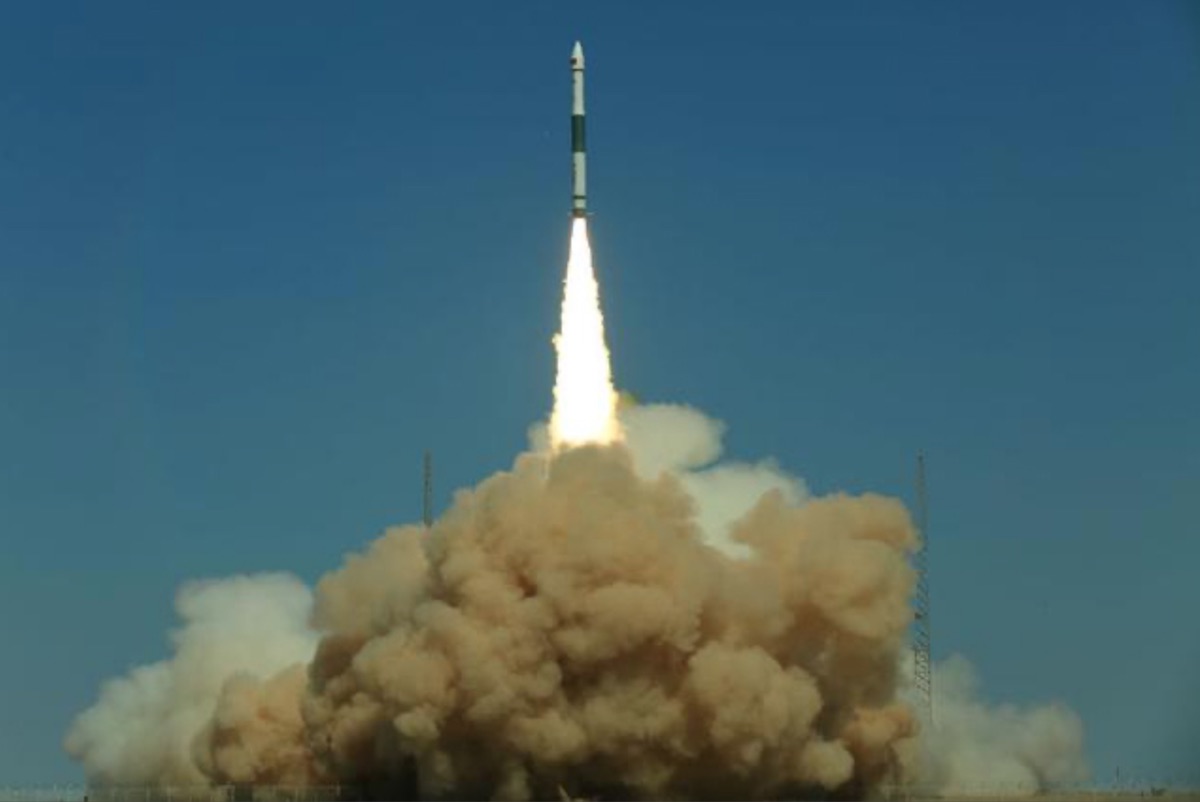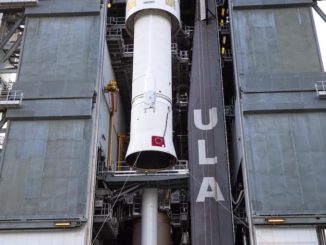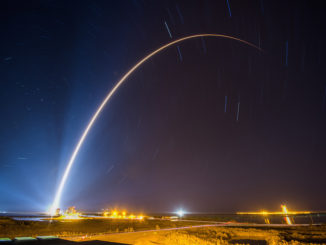
A Chinese small satellite launcher failed after liftoff Saturday, destroying a commercial Earth-imaging payload before it could enter orbit.
The Kuaizhou 1A rocket carrying the Jilin 1 Gaofen 02C optical remote sensing satellite lifted off from the Jiuquan space base in northwestern China at 0502 GMT (1:02 a.m. EDT) Saturday, according to the state-run Xinhua news agency.
Xinhua said the launch vehicle “failed to enter the preset orbit” after “abnormal performance was identified during the rocket’s flight.”
The Kuaizhou 1A rocket is operated by Expace, a subsidiary of the government-owned China Aerospace Science and Industry Corp., or CASIC. Expace developed the Kuaizhou rocket family — based on Chinese military missile technology — to pursue a growing commercial space market in China.
CASIC initially announced on social media Saturday that the launch was successful, but the posting was later deleted. The official Chinese Xinhua news agency later confirmed the mission failed.
The Kuaizhou 1A rocket is capable of injecting 440 pounds (200 kilograms) of payload to a 435-mile-high (700-kilometer) orbit, according to Expace. Kuaizhou means “speedy vessel” in Chinese, a name indicative of its purpose as a satellite launcher that can be readied for liftoff in a short time period.
The rocket launches from a road-mobile transporter, and consists of three solid-fueled boost stages and a liquid-fueled orbital injection stage.
The small Jilin 1 Gaofen 02C spacecraft was supposed to join a fleet of commercial Earth-imaging satellites owned by Chang Guang Satellite Technology Co. Ltd. Sixteen Jilin 1-series spacecraft have successfully launched since 2015.
The Jilin 1 Gaofen 02C satellite was designed to collect imagery with a resolution of better than 2.5 feet (76 centimeters), supporting applications in natural resource and environmental monitoring, according to the CASIC launch announcement, which was later deleted.
The launch Saturday was the first failure of a Kuaizhou 1A rocket in 10 flights since 2017. A more powerful variant of the Kuaizhou family, named the Kuaizhou 11, failed on its inaugural launch in July.
Four of 26 Chinese satellite launch attempts have failed this year, including the Kuaizhou 1A mishap Saturday and the Kuaizhou 11 failure in July. The debut flight of the Chinese Long March 7 rocket faltered before reaching orbit in March, and a Long March 3B rocket crashed fell back to Earth in April with an Indonesian communications satellite.
Plans for two additional Kuaizhou 1A rocket launches Sept. 17 and Sept. 22 were unclear after the failure Saturday.
Email the author.
Follow Stephen Clark on Twitter: @StephenClark1.



